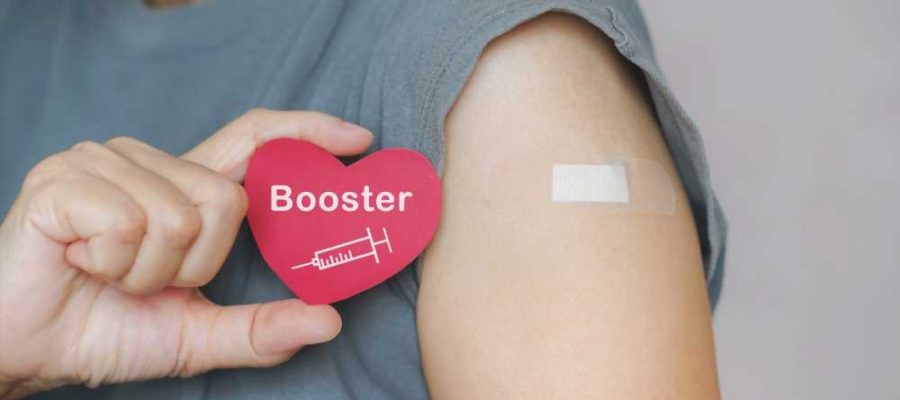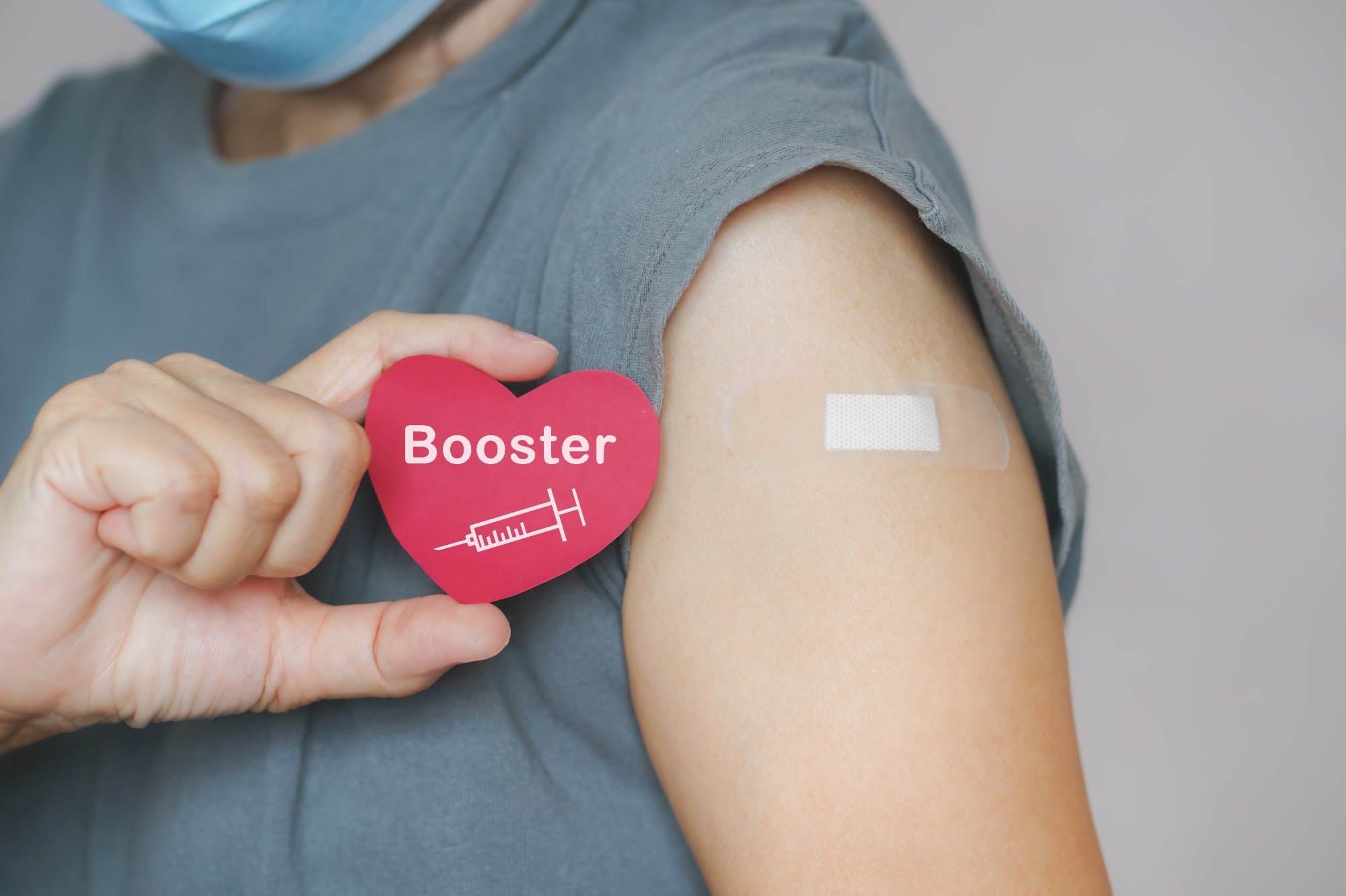
New omicron sublineages surge, but Pfizer-BioNTech bivalent booster retains effectiveness
In a recent study published in The Lancet Respiratory Medicine, a team of researchers from the United States (U.S.) examined the efficacy of the bivalent Pfizer-BioNTech coronavirus disease 2019 (COVID-19) messenger ribonucleic acid (mRNA) vaccine BNT162b2 BA.4/5 in preventing severe acute respiratory syndrome coronavirus 2 (SARS-CoV-2) XBB lineage infections.
 Study: Effectiveness of BNT162b2 BA.4/5 bivalent mRNA vaccine against a range of COVID-19 outcomes in a large health system in the USA: a test-negative case–control study. Image Credit: Ratana21/Shutterstock.com
Study: Effectiveness of BNT162b2 BA.4/5 bivalent mRNA vaccine against a range of COVID-19 outcomes in a large health system in the USA: a test-negative case–control study. Image Credit: Ratana21/Shutterstock.com
Background
Although the severe morbidity and high mortality rates associated with the COVID-19 pandemic have been efficiently controlled with the development of various COVID-19 vaccines, new variants of SARS-CoV-2 continue to emerge.
These variants carry novel mutations, some in the receptor binding regions of the SARS-CoV-2 spike protein, which help them evade the immunity induced by vaccines and previous SARS-CoV-2 infections.
The Omicron variant and its sub-lineages have been known to carry numerous novel mutations. Although Omicron infections are less virulent, the transmissibility of this lineage has been high due to its immune evasive abilities.
The bivalent mRNA vaccines that encode the spike protein from the ancestral Wuhan-Hu-1 strain and the Omicron BA.4/BA.5 variant have been effective in protecting against SARS-CoV-2 infections during the period of dominance of the omicron subvariants related to the BA.4/BA.5 lineage.
However, the efficacy of Pfizer-BioNTech’s bivalent mRNA vaccine BNT162b2 in protecting against infections from the XBB Omicron lineage has not been studied extensively.
About the study
In the present study, the researchers used electronic health records of individuals in southern California above 18 who had received at least two doses of the Pfizer-BioNTech or Moderna wildtype monovalent mRNA vaccine.
The case-control study was designed on a test-negative basis and examined the effectiveness of the bivalent BNT162b2 BA.4/BA.5 vaccine in protecting against various COVID-19 outcomes, such as hospital admission, outpatient visits, emergency department visits, and critical illness requiring access in the intensive care unit (ICU), the need for mechanical ventilation, or mortality.
The study included individuals with a diagnosis of acute respiratory infection who had been tested for SARS-CoV-2 using a polymerase chain reaction (PCR) test in the hospital, emergency department, or outpatient setting between the end of August 2022 and April 2023, which was after the bivalent mRNA vaccine was approved as a booster dose from adults in the U.S. This study period also covered the periods of dominance of the BA.2, BA.4/BA.5, and XBB lineages.
Those who had received a booster dose of the Moderna bivalent vaccine mRNA-1273.222, more than five doses of the monovalent wildtype mRNA vaccine, or any other non-mRNA vaccine were excluded from the study.
Additionally, those who had received any outpatient COVID-19 antiviral or monoclonal antibody treatment before being diagnosed with a respiratory infection were also excluded.
The examined outcomes included the odds of vaccination between COVID-19-positive cases and test-negative controls.
Although the patients in both the case and control groups had acute respiratory infections requiring emergency department or outpatient visits, hospital admission, ICU admission, or mechanical ventilation, those with positive SARS-CoV-2 PCR test results were considered as cases, and those with negative test results were considered as controls. Whole genome sequencing was used to identify the Omicron sub-lineage causing the infection.
Results
The results showed that individuals vaccinated with only the monovalent wildtype mRNA vaccine were not protected against many of the outcomes of SARS-CoV-2 Omicron lineage infections.
However, a booster dose of the bivalent BNT162b2 BA.4/BA.5 vaccine was seen to grant substantial protection against various COVID-19 outcomes such as critical illness and hospital admission during the period of dominance of all the Omicron variants, including the XBB sub-lineages.
A booster dose of the bivalent BNT162b2 BA.4/BA.5 mRNA vaccine was found to increase the protection against critical COVID-19, hospital admission, emergency department visits, and outpatient encounters by 50%, 39%, 35%, and 28%, respectively.
Furthermore, these findings remained consistent across adults of all age groups, including those above 65, irrespective of the number of monovalent mRNA COVID-19 vaccines they had received.
Furthermore, the increased protection after the administration of the bivalent mRNA COVID-19 vaccine was found to extend to all Omicron lineage infections, including those caused by the newly emergent XBB lineages, with no evidence of any reduction in efficacy against the XBB lineage infections.
Additionally, although the protection against outpatient encounters was found to wane four to seven months after administering the bivalent vaccine booster dose, the protection against the other, more severe COVID-19 outcomes was not found to decrease.
Conclusions
To summarize, the study reported that the protection against a wide range of COVID-19 outcomes increased significantly after the booster doses of the bivalent BNT162b2 BA.4/BA.5 mRNA vaccine.
Furthermore, the protection against severe COVID-19 outcomes extended to infections caused by the XBB sub-lineages and did not vary based on age.
Tartof, S. Y., Slezak, J. M., Puzniak, L., Hong, V., Frankland, T. B., Ackerson, B. K., Xie, F., Takhar, H., Ogun, O. A., Simmons, S., Zamparo, J. M., Valluri, Srinivas R, Jodar, L., & McLaughlin, J. M. (n.d.). (2023) Effectiveness of BNT162b2 BA.4/5 bivalent mRNA vaccine against a range of COVID-19 outcomes in a large health system in the USA: a test-negative case-control study. The Lancet Respiratory Medicine. doi: https://doi.org/10.1016/S22132600(23)003065. https://www.thelancet.com/journals/lanres/article/PIIS2213-2600(23)00306-5/fulltext.
Posted in: Medical Science News | Medical Research News | Medical Condition News | Disease/Infection News
Tags: Antibody, Coronavirus, covid-19, Efficacy, Genome, Hospital, immunity, Intensive Care, Medicine, Monoclonal Antibody, Mortality, Omicron, Pandemic, Polymerase, Polymerase Chain Reaction, Protein, Receptor, Respiratory, Ribonucleic Acid, SARS, SARS-CoV-2, Severe Acute Respiratory, Severe Acute Respiratory Syndrome, Spike Protein, Syndrome, Vaccine, Whole Genome Sequencing
.jpg)
Written by
Dr. Chinta Sidharthan
Chinta Sidharthan is a writer based in Bangalore, India. Her academic background is in evolutionary biology and genetics, and she has extensive experience in scientific research, teaching, science writing, and herpetology. Chinta holds a Ph.D. in evolutionary biology from the Indian Institute of Science and is passionate about science education, writing, animals, wildlife, and conservation. For her doctoral research, she explored the origins and diversification of blindsnakes in India, as a part of which she did extensive fieldwork in the jungles of southern India. She has received the Canadian Governor General’s bronze medal and Bangalore University gold medal for academic excellence and published her research in high-impact journals.